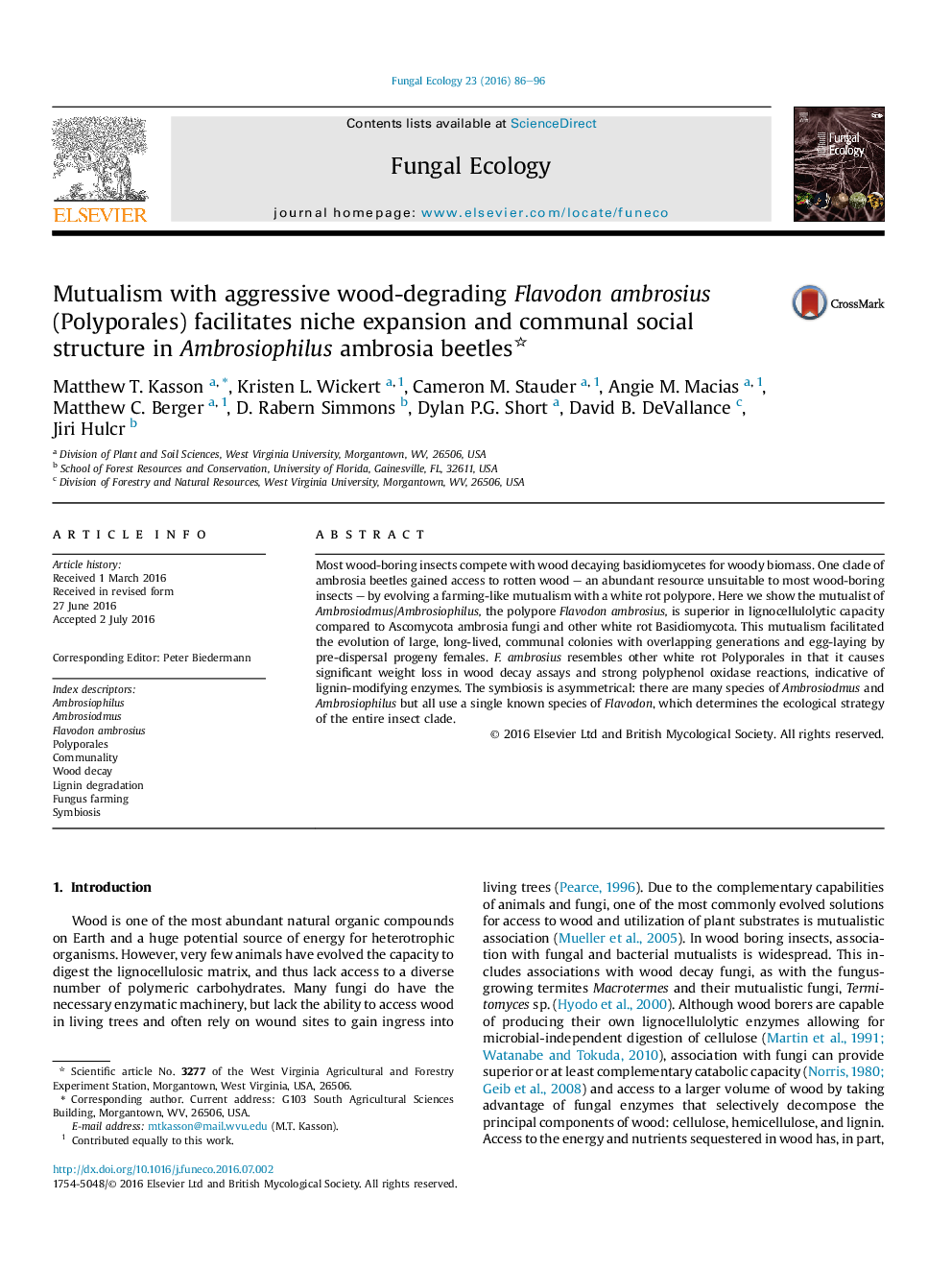| کد مقاله | کد نشریه | سال انتشار | مقاله انگلیسی | نسخه تمام متن |
|---|---|---|---|---|
| 8384322 | 1543641 | 2016 | 11 صفحه PDF | دانلود رایگان |
عنوان انگلیسی مقاله ISI
Mutualism with aggressive wood-degrading Flavodon ambrosius (Polyporales) facilitates niche expansion and communal social structure in Ambrosiophilus ambrosia beetles
دانلود مقاله + سفارش ترجمه
دانلود مقاله ISI انگلیسی
رایگان برای ایرانیان
کلمات کلیدی
موضوعات مرتبط
علوم زیستی و بیوفناوری
علوم کشاورزی و بیولوژیک
بوم شناسی، تکامل، رفتار و سامانه شناسی
پیش نمایش صفحه اول مقاله

چکیده انگلیسی
Most wood-boring insects compete with wood decaying basidiomycetes for woody biomass. One clade of ambrosia beetles gained access to rotten wood - an abundant resource unsuitable to most wood-boring insects - by evolving a farming-like mutualism with a white rot polypore. Here we show the mutualist of Ambrosiodmus/Ambrosiophilus, the polypore Flavodon ambrosius, is superior in lignocellulolytic capacity compared to Ascomycota ambrosia fungi and other white rot Basidiomycota. This mutualism facilitated the evolution of large, long-lived, communal colonies with overlapping generations and egg-laying by pre-dispersal progeny females. F. ambrosius resembles other white rot Polyporales in that it causes significant weight loss in wood decay assays and strong polyphenol oxidase reactions, indicative of lignin-modifying enzymes. The symbiosis is asymmetrical: there are many species of Ambrosiodmus and Ambrosiophilus but all use a single known species of Flavodon, which determines the ecological strategy of the entire insect clade.
ناشر
Database: Elsevier - ScienceDirect (ساینس دایرکت)
Journal: Fungal Ecology - Volume 23, October 2016, Pages 86-96
Journal: Fungal Ecology - Volume 23, October 2016, Pages 86-96
نویسندگان
Matthew T. Kasson, Kristen L. Wickert, Cameron M. Stauder, Angie M. Macias, Matthew C. Berger, D. Rabern Simmons, Dylan P.G. Short, David B. DeVallance, Jiri Hulcr,